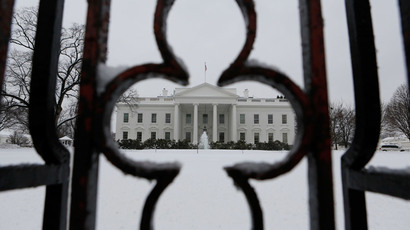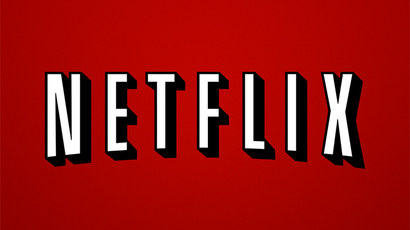FCC’s new proposal seen as abandoning net neutrality

The FCC will propose new rules on Thursday that will offer internet service providers the ability to charge content companies for preferential treatment, the Wall Street Journal reported. The changes have been decried by many advocates of net neutrality.
The new rules will set up a framework whereby internet service providers (ISPs) would be able to negotiate directly with companies beaming content through the web - such as Netflix or Amazon - and charge for priority bandwidth on “commercially reasonable” terms.
The Federal Communications Commission (FCC) would determine what those “reasonable” terms are on a case-by-case basis, according to the Wall Street Journal.
"Exactly what the baseline level of service would be, the construction of a 'commercially reasonable' standard, and the manner in which disputes would be resolved, are all among the topics on which the FCC will be seeking comment," an FCC spokesperson told The Verge.
The proposal would not allow service providers to block or discriminate against individual websites, such as slowing down connection time. Regardless, advocates of net neutrality have taken issue with that arrangement, which they argue favor larger companies.
Proponents of net neutrality – the idea that all internet content should be treated equally, thus a maintaining a free and open web – see the proposed FCC rules as an acquiescence to the most powerful internet gatekeepers, such as Comcast, AT&T, and Verizon.
In its own reporting, the New York Times referred to the plan as a ”complete turnaround for the FCC” while a spokesperson for Public Knowledge, a Washington DC-based public interest group, said that “the FCC is inviting ISPs to pick winners and losers online.”
“The proposed rules would mark a complete capitulation to the monied internet interests, harming consumers in the short and long-term,” wrote T.C. Sottek, editor of The Verge, in an op-ed. “The ISPs that control the ‘last mile’ of the internet — the pipes that connect to your home — would love nothing more than to extract tolls from companies.”
Sottek went on to say that the FCC has failed to protect consumer interests by refusing to classify broadband as a public utility, which would insulate customers from inequality or price gouging via new regulations.
Companies that rely on pristine broadband connections, like phone or video services like Skype, could use the new terms to pay ISPs to maintain heightened service. The companies in this case would be paying for privileges on the “last mile” of broadband networks that connects straight to consumers. The FCC plan does not address “back-end interconnection or peering between content providers and broadband networks,” the Journal reported.
The FCC will consider the rules internally starting Thursday before a scheduled vote among the five-member commission on May 15. If the rules are passed, they would then be open to public comment.
In January, a federal court threw out previous open internet rules, saying the FCC did not have the power to require internet service providers to treat all traffic equally. FCC Chairman Tom Wheeler said in February he planned to offer new guidelines following the legal pathway provided by the court.
After the court ruling, open internet advocates criticized the FCC for not previously classifying ISPs as "common carriers" that must operate without preference. They said that the FCC’s fragile legal argument was asking for the court’s rejection.
"The FCC — under the leadership of former Chairman Julius Genachowski — made a grave mistake when it failed to ground its Open Internet rules on solid legal footing," said Free Press president Craig Aaron at the time. "Internet users will pay dearly for the previous chairman's lack of political will."
The Journal reported that the FCC plans to “increase the disclosure requirements for broadband providers,” which could offer more information on different aspects of service along the last mile, such as connection speed.
The proposal would avoid wireless carriers, though mobile broadband may be subject to the same standards at a later point, the Journal said.













